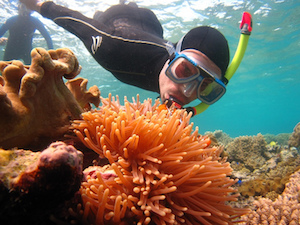 We Kiwis have travel in our blood, whether it’s zipping across the Tasman for a weekend, embarking on an OE or visiting our grown up children wherever in the world they have settled. With pastures as green as ours, we aren’t looking for a better option, simply to experience all the world has to offer.
We Kiwis have travel in our blood, whether it’s zipping across the Tasman for a weekend, embarking on an OE or visiting our grown up children wherever in the world they have settled. With pastures as green as ours, we aren’t looking for a better option, simply to experience all the world has to offer.Hundreds of years before Christopher Columbus started his travels, Aotearoa had already been discovered by intrepid travellers in waka. Maori culture and travel continues to be integral to our national identity.
Our early European settlers came from far and wide to establish farms and settlements here. These men were fearless, taking a chance on heading out into the great unknown, unaware of what they would encounter when they docked their fleets. It’s this resourcefulness and ingenuity that has peppered the New Zealand character.
Did you know that on any given day, more than 80,000 New Zealanders are off travelling the world on short trips for business and pleasure? This number is separate from the 45,000 citizens who leave annually for a permanent move or a long term trip with work visas.
According to the Ministry of Tourism, Kiwis travel to over 150 countries with the majority going to Australia, followed by Fiji, USA, UK, China, South East Asia and Canada. Judging by these stats, it’s clear that travel is important to all New Zealanders and we make it part of our lifestyle.
In Case Of Emergency…
We may be a brave and innovative, but that doesn’t mean we’re not susceptible to nasty surprises, natural disasters and bad luck like theft and crime. The easiest way to soften these blows when travelling abroad is to plan ahead while help prepare you for the unexpected!
Here are some things to keep in mind before you start packing those bags:
- If you’re travelling somewhere off the beaten track you need to be prepared vaccination-wise! And if you do need immunisations or vaccinations, then you’re going to have to see your doctor at least 6 weeks before your date of departure. Hepatitis A, B and C are the most common ones to get, but make sure your Tetanus is up to date as well.
- Be sure to have in-depth medical and dental check ups before your trip unless you’re open to contracting serious infectious diseases during surgery! It’s good to be aware of any health problems so that you know exactly which medications to bring with you.
- Don’t even consider leaving the country without proper travel insurance. Knowing exactly what your policy will cover you for in another country will not only ease the hassle when things go wrong, but it’ll give you peace of mind! Bring any prescriptions with you and wear a medical bracelet if needed. You can never be over-prepared when it comes to your health!
And here are some handy hints for you while you’re traveling:
- Remember, you are what you eat so eat carefully! If you’re going to a country with a more relaxed attitude to hygiene, you’ve got an increased risk of delightful traveller’s diarrhoea (also known as Delhi Belly or Beaver Fever!) Well-cooked foods are the safest, and while you shouldn’t necessarily avoid the delicious street food from vendors try to stick to a vegetarian diet. Drinking water from commercially-sealed bottles or drink carbonated beverages will help you avoid toilet mishaps! And avoid ice at all costs.
- If you’re going to a country with an increased risk of mosquito-borne disease, protect yourself against insects by packing insect repellent that contains DEET as it work the best. Bed nets aren’t the sexiest apparatuses while you’re sleeping, but they’ll keep the bities at bay!
- Countries with a high risk of malaria are par for the course when you’re out looking for adventure spots. Start taking malaria tablets before you leave for your trip, during your travels and for 4 weeks after you get home.
- When swimming in freshwater lakes and streams be aware that you could be exposing yourself to some nasty diseases. Proper immunisation and vaccination can help with this, but pack some antibiotics if you think you’ll be partaking in water sports abroad!
- When travelling within a foreign country be sure to buckle up! While your average tuk-tuk might not have safety belts, try not to ride in vehicles without them. When riding motorcycles and scooters, wear a helmet!
Things to include in a first-aid kit for travelling
- Your prescription medicines, in their original containers.
- Medicine for diarrhoea and upset stomach.
- Cough and cold medicines.
- Pain medicines, such as aspirin, acetaminophen and ibuprofen.
- Decongestants and antihistamines for allergies. The kinds that don’t cause sleepiness are better when you’re traveling.
- Antibiotic ointment, adhesive bandages, hydrocortisone cream, moleskin for blisters, sunscreen with a sun protection factor (SPF) of at least 15 and lip balm.
- Hand wipes and hand sanitisers.
Are you looking for 50% Off your Travel Insurance? For more information, click here.









Join the Discussion
Type out your comment here:
You must be logged in to post a comment.